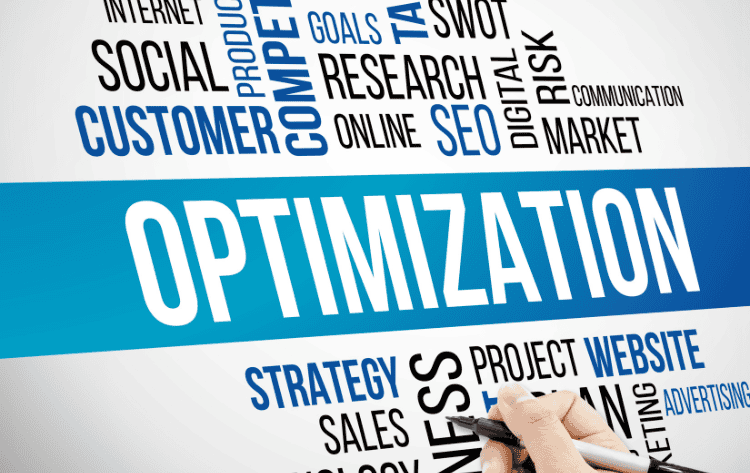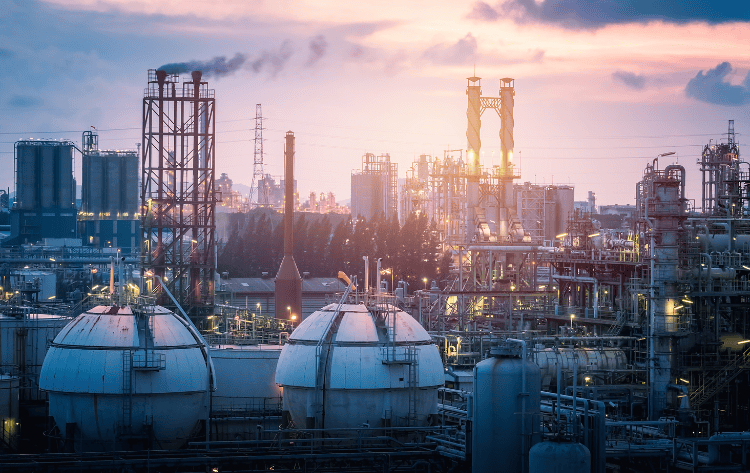As the chemical industry continues to evolve, digitalization is playing a crucial role in transforming traditional chemical processes. The integration of new technologies is paving the way for increased efficiency, productivity, and safety. We will examine two significant advancements in digitalization: automation and robotics, along with IoT and sensor technology.
Automation and Robotics
Automation and robotics have revolutionized the chemical industry by streamlining processes and reducing human intervention. With the help of advanced robotic systems, tasks that were once labor-intensive and time-consuming can now be performed with precision and accuracy.
Robotic systems are capable of handling hazardous materials and carrying out repetitive tasks with minimal risk to human operators. They can also operate in challenging environments, such as extreme temperatures or confined spaces, where human presence may be difficult or dangerous. By automating these processes, companies can improve operational efficiency, reduce costs, and enhance safety.
IoT and Sensor Technology
The Internet of Things (IoT) and sensor technology have transformed the chemical industry by providing real-time data and insights into various stages of the production process. IoT devices and sensors can monitor and collect data on parameters such as temperature, pressure, pH levels, and chemical composition. This data is then analyzed to optimize processes, predict maintenance requirements, and ensure product quality.
Leveraging IoT and sensor technology enables chemical companies to achieve proactive maintenance, reducing downtime and minimizing equipment failures. Real-time monitoring facilitates timely adjustments and interventions, enhancing process control and overall efficiency. Additionally, IoT-enabled devices support remote monitoring and control, allowing companies to oversee operations from anywhere in the world.
Digitalization through automation and robotics, as well as IoT and sensor technology, is revolutionizing the chemical industry. These advancements are not only improving operational efficiency and productivity but also enhancing safety and quality control. As the industry continues to embrace new technologies, it is poised for further advancements, leading to a more sustainable and innovative future.
Data Analytics and AI in Chemical Industry
As technology continues to advance, data analytics and artificial intelligence (AI) are playing an increasingly significant role in the chemical industry. These innovative tools offer numerous benefits, including predictive maintenance and process optimization.
Predictive Maintenance
Predictive maintenance utilizes data analytics and AI algorithms to identify potential equipment failures before they occur. By collecting and analyzing real-time data from sensors and other sources, chemical companies can detect patterns and anomalies that may indicate equipment degradation or malfunction.
Implementing predictive maintenance in the chemical industry helps businesses optimize maintenance schedules, reduce downtime, and avoid costly unplanned shutdowns. By proactively addressing maintenance needs, companies can increase equipment reliability, extend the lifespan of assets, and improve overall operational efficiency.

Process Optimization
Process optimization involves leveraging data analytics and AI to optimize various aspects of chemical processes. By analyzing vast amounts of data, including process parameters, raw material characteristics, and environmental conditions, chemical companies can identify opportunities for improvement and make data-driven decisions.
Through process optimization, chemical companies can enhance product quality, increase production efficiency, and reduce energy consumption. By identifying optimal process parameters and adjusting them in real-time, businesses can achieve consistent and reliable results, minimize waste, and improve overall operational performance.
To fully harness the power of data analytics and AI in the chemical industry, companies need to invest in robust data infrastructure, advanced analytics tools, and AI capabilities. This enables them to effectively collect, store, and analyze data, and leverage AI algorithms to gain valuable insights and drive informed decision-making.
Embracing data analytics and AI in the chemical industry enables businesses to unlock new opportunities for growth, innovation, and sustainable practices. As technology evolves, integrating these tools will become increasingly vital for companies aiming to remain competitive in this dynamic landscape. By leveraging data-driven insights, organizations can enhance operational efficiency, improve product development, and drive sustainability initiatives, positioning themselves for long-term success.
Advances in Material Science
As the chemical industry continues to evolve, significant advancements in material science have emerged, revolutionizing various aspects of production and product development. Two key areas of focus in this domain are nanotechnology and sustainable materials.
Nanotechnology
Nanotechnology has gained prominence in the chemical industry due to its ability to manipulate and control materials at the nanoscale level. This technology involves the creation, manipulation, and application of materials with dimensions ranging from 1 to 100 nanometers. The unique properties exhibited by nanoparticles enable enhanced performance and functionality in various chemical processes and products.
Nanotechnology has found applications in diverse areas of the chemical industry, including catalysts, coatings, sensors, and drug delivery systems. By utilizing nanoparticles, chemical reactions can be catalyzed more efficiently, resulting in improved yields and reduced energy consumption. Additionally, the use of nanocoatings enhances the durability and corrosion resistance of materials, extending their lifespan.
To illustrate the impact of nanotechnology, consider the following examples:
| Application | Nanotechnology Advantages |
| Catalysts | Increased surface area for improved reaction rates |
| Coatings | Enhanced durability and corrosion resistance |
| Sensors | Enhanced sensitivity and selectivity |
| Drug Delivery Systems | Improved drug efficacy and targeted delivery |
Sustainable Materials
With a growing focus on sustainability, the chemical industry has been actively exploring and developing sustainable materials. These materials aim to minimize environmental impact while maintaining or improving performance characteristics.
Sustainable materials can be derived from renewable resources, recycled materials, or by adopting eco-friendly manufacturing processes. They offer an alternative to traditional materials that may be derived from non-renewable sources or have a significant carbon footprint.
Adopting sustainable materials in the chemical industry contributes to reducing waste, conserving resources, and lowering greenhouse gas emissions. It also helps meet the increasing demand for environmentally friendly products across various sectors.
Some examples of sustainable materials being used in the chemical industry include bio-based polymers, biodegradable materials, and recycled plastics. These materials provide comparable performance to their traditional counterparts while offering the added benefit of sustainability.
| Sustainable Material | Advantages |
| Bio-based Polymers | Reduced dependence on fossil fuels |
| Biodegradable Materials | Minimized environmental impact |
| Recycled Plastics | Diversion of waste from landfills |
Advancements in material science, including nanotechnology and sustainable materials, allow the chemical industry to drive innovation, enhance efficiency, and tackle environmental concerns. These technologies create pathways for more sustainable and responsible practices, ultimately benefiting both businesses and the planet.

Future Trends in the Chemical Industry
As the chemical industry continues to evolve, new technologies are shaping the future of this sector. Two significant trends that are gaining momentum are the 3D printing of chemical components and the integration of blockchain technology.
3D Printing of Chemical Components
The advent of 3D printing has revolutionized various industries, and the chemical industry is no exception. 3D printing, also known as additive manufacturing, allows for the creation of complex three-dimensional objects by layering materials. In the chemical industry, this technology has the potential to transform the production of chemical components and equipment.
Utilizing 3D printing allows chemical companies to enhance efficiency and reduce costs in their manufacturing processes. This technology enables the customization of components, eliminates the need for complex supply chains, and minimizes waste. Furthermore, 3D printing facilitates the rapid prototyping of new chemical products, significantly accelerating the innovation cycle.
Integration of Blockchain Technology
Blockchain technology is another disruptive force making its mark on the chemical industry. Blockchain is a decentralized and transparent digital ledger that securely records transactions across multiple parties. Its implementation in the chemical industry offers several advantages, including enhanced supply chain management, improved traceability, and increased security.
Integrating blockchain technology allows chemical companies to create a tamper-proof record of every stage in the supply chain, from raw material sourcing to final product distribution. This enhanced transparency mitigates counterfeiting, improves quality control, and ensures compliance with regulatory standards. Furthermore, blockchain can streamline transactions between chemical companies, significantly reducing paperwork and administrative overhead.
The future of the chemical industry is shaped by advancements in technology, with 3D printing and blockchain technology at the forefront of this transformation. These innovations revolutionize how we manufacture chemical components and conduct transactions, paving the way for enhanced efficiency and cost savings.
Partner with LK Tech to Embrace Chemical Industry Innovation
We harness these cutting-edge technologies to deliver exceptional solutions tailored to your needs. As a Cincinnati-based IT services company, we, at LK Tech, focus on helping businesses gain a competitive edge in the ever-evolving chemical landscape. Our dedicated team of IT experts in Cincinnati, Ohio works closely with you to understand your unique challenges and develop customized strategies that maximize efficiency and safety.
We pride ourselves on our commitment to quality, ensuring that our solutions not only meet but exceed industry standards. Contact us today to learn how our expertise can drive your success in this dynamic industry!


